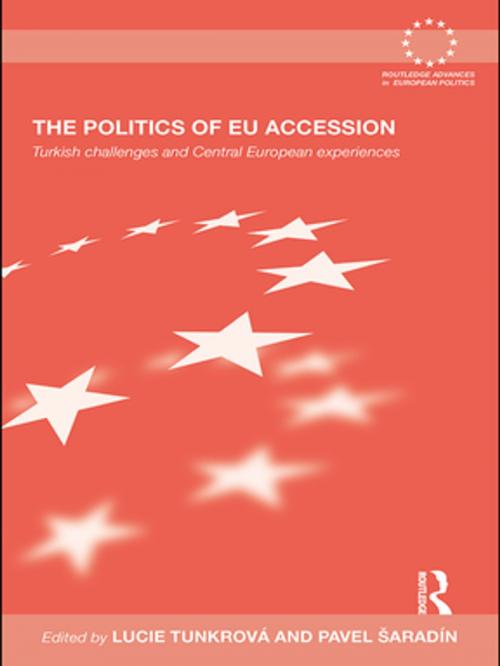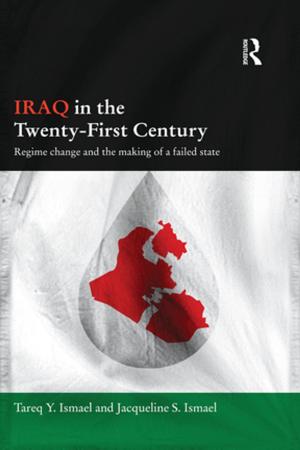The Politics of EU Accession
Turkish Challenges and Central European Experiences
Nonfiction, Social & Cultural Studies, Political Science, International, International Relations| Author: | ISBN: | 9781136979262 | |
| Publisher: | Taylor and Francis | Publication: | May 4, 2010 |
| Imprint: | Routledge | Language: | English |
| Author: | |
| ISBN: | 9781136979262 |
| Publisher: | Taylor and Francis |
| Publication: | May 4, 2010 |
| Imprint: | Routledge |
| Language: | English |
The question of Turkish membership in the European Union is highly controversial and subject to many misperceptions and misunderstandings on both sides.
This book examines the politics of EU accession which have evolved during the expansion of the EU, from more procedural conditions to provisions of substantive democracy. With a particular focus on the challenges Turkey faces to join the EU, the authors examine the experiences of the newly-democratised and acceded Czech Republic, Hungary, Poland and Slovakia to provide insight and to identify the best possible solutions.
Combining the Turkish and Central European perspectives in one volume, and using a social constructivist approach, the authors address issues including Euroscepticism, EU absorption capacity, women’s rights, democratisation, Turkish Kamalism, the desecuritisation of Turkish politics and the problem of Northern Cyprus. This volume establishes the challenges the EU, its member states and the candidate countries need to face and successfully address in order to contribute to both their democratization and the European integration process.
This book will be of interest to students and scholars of European politics, Turkish politics and international politics.
The question of Turkish membership in the European Union is highly controversial and subject to many misperceptions and misunderstandings on both sides.
This book examines the politics of EU accession which have evolved during the expansion of the EU, from more procedural conditions to provisions of substantive democracy. With a particular focus on the challenges Turkey faces to join the EU, the authors examine the experiences of the newly-democratised and acceded Czech Republic, Hungary, Poland and Slovakia to provide insight and to identify the best possible solutions.
Combining the Turkish and Central European perspectives in one volume, and using a social constructivist approach, the authors address issues including Euroscepticism, EU absorption capacity, women’s rights, democratisation, Turkish Kamalism, the desecuritisation of Turkish politics and the problem of Northern Cyprus. This volume establishes the challenges the EU, its member states and the candidate countries need to face and successfully address in order to contribute to both their democratization and the European integration process.
This book will be of interest to students and scholars of European politics, Turkish politics and international politics.















